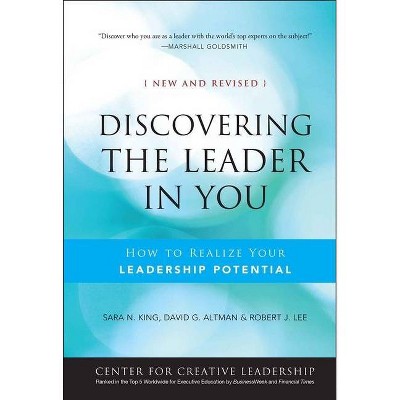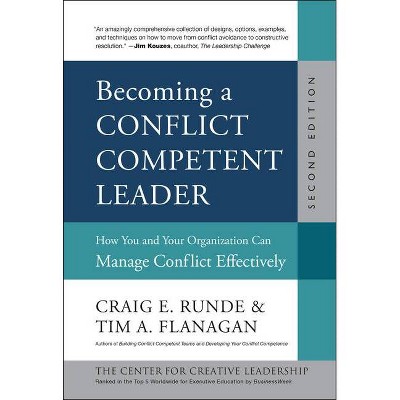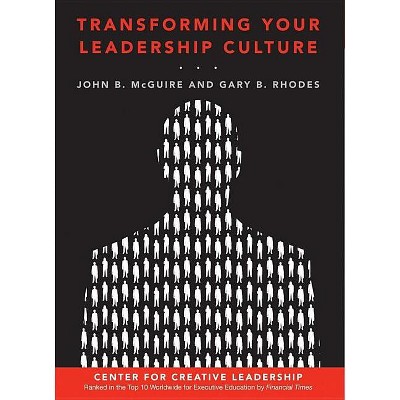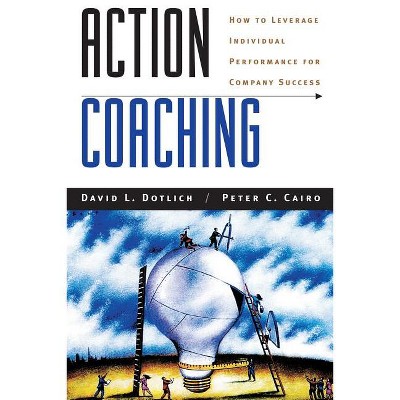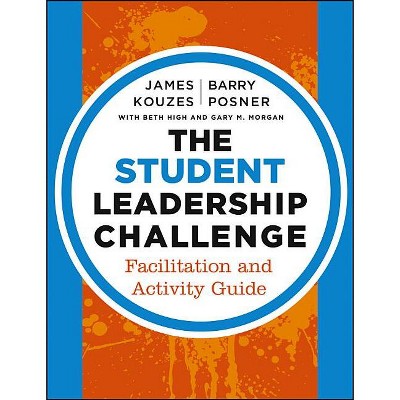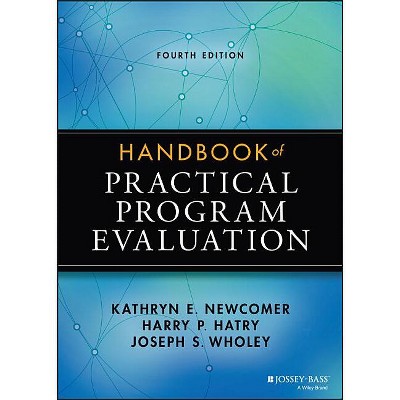The Center for Creative Leadership Handbook of Coaching in Organizations - (J-B CCL (Center for Creative Leadership)) (Hardcover)

About this item
Highlights
- Effect better outcomes with a robust coaching program The CCL Handbook of Coaching in Organizations deals with the practical, ethical, and political challenges of coaching within an organization.
- About the Author: DOUGLAS D. RIDDLE is global director of Coaching Services at the Center for Creative Leadership.
- 624 Pages
- Business + Money Management, Organizational Development
- Series Name: J-B CCL (Center for Creative Leadership)
Description
Book Synopsis
Effect better outcomes with a robust coaching programThe CCL Handbook of Coaching in Organizations deals with the practical, ethical, and political challenges of coaching within an organization. From coaching superiors to coaching business teams, this book outlines the Center for Creative Leadership (CCL) approach to professional coaching to help readers better manage leadership development and talent management program outcomes. With expert guidance on the key functions of human resources, learning and development, and organizational development, readers will gain insight into the issues associated with coaching program implementation and management, and the use of internal versus external coaches. Coverage includes a wide range of coaching-based services used in most large organizations, with practical advice on creating the right programs for maximum impact within the available budget.
Professional development is a hot topic and plays a key role in attracting and retaining the best talent. Coaching is a broad area within the field, encompassing a range of services and goals, with varied expectations and requirements. This book provides actionable guidance for those designing, initiating, and implementing coaching programs, with new approaches and techniques that drive better outcomes.
- Provide direct coaching within an organization
- Manage coaching systems and programs
- Initiate and lead mentoring and peer-coaching programs
- Manage external coaches, and deal effectively with coaching suppliers
An ideal coaching program must balance need with budget and be tailored to the requirements and resources of both the organization and the participants. It's a complex undertaking, but the right strategy and planning can lead to even better than expected outcomes. For the human resources professional who wants to strengthen an organization's coaching program, CCL Handbook of Coaching in Organizations is a thoughtful reference for a specialized function.
From the Back Cover
Organizations around the world are recognizing the importance of coaching that goes beyond the traditional "one coach, one executive" model. It turns out that coaching can be an effective way of developing talent and retaining high-potential employees at all levels of the hierarchy. And, at every level, the most important coaching conversations are often those that take place in hallways or over lunch meetings. To harness the power of internal coaching in a systematic way, human resources leaders need to develop coaching programs that promote individual and organizational learning while avoiding the practical, ethical, and political challenges that can arise in the process. Thankfully, there's no need to reinvent the wheel, because The CCL Handbook of Coaching in Organizations synthesizes coaching lessons and best practices from organizations of all types in over 130 countries.
Coaching, mentoring, and development are crucial to the health of any organization. As research from the Center for Creative Leadership (CCL) has clearly shown, even the most innovative business strategies are next to useless without adequate leadership. From the point of view of human resources leaders, coaching programs can seem like one more task in an endlessly complex and often conflicting role. The CCL Handbook of Coaching in Organizations solves this problem deftly by taking an ecological approach and showing how the coaching program can be an integrated element in a comprehensive plan for organizational development.
This text addresses the culture of coaching and coaching programs from a big-picture perspective that will help orient human resources experts in their quest to assess the need for coaching and to create, manage, and evaluate coaching systems. The CCL Handbook also covers concrete, immediately useful advice on unique challenges like team coaching, cross-cultural coaching, ethical considerations, and coaching senior executives. An abundance of examples and a foundation in the CCL's experience with hundreds of thousands of leaders around the world make The CCL Handbook of Coaching in Organizations an excellent resource for sharing across the organization, enlisting leadership support, and building the case for implementing best practices. With this versatility, The CCL Handbook of Coaching in Organizations should help human resources in any organization drive long-term outcomes by embracing a robust coaching strategy.
About the Author
DOUGLAS D. RIDDLE is global director of Coaching Services at the Center for Creative Leadership. He also serves as senior advisor to the Harvard Institute of Coaching.
EMILY HOOLE is group director of Global Research and Evaluation for the Center for Creative Leadership.
ELIZABETH C. D. GULLETTE is vice president in Leadership & Organizational Effectiveness at Alix Partners and previously served as senior faculty and coaching practice leader at the Center for Creative Leadership.






